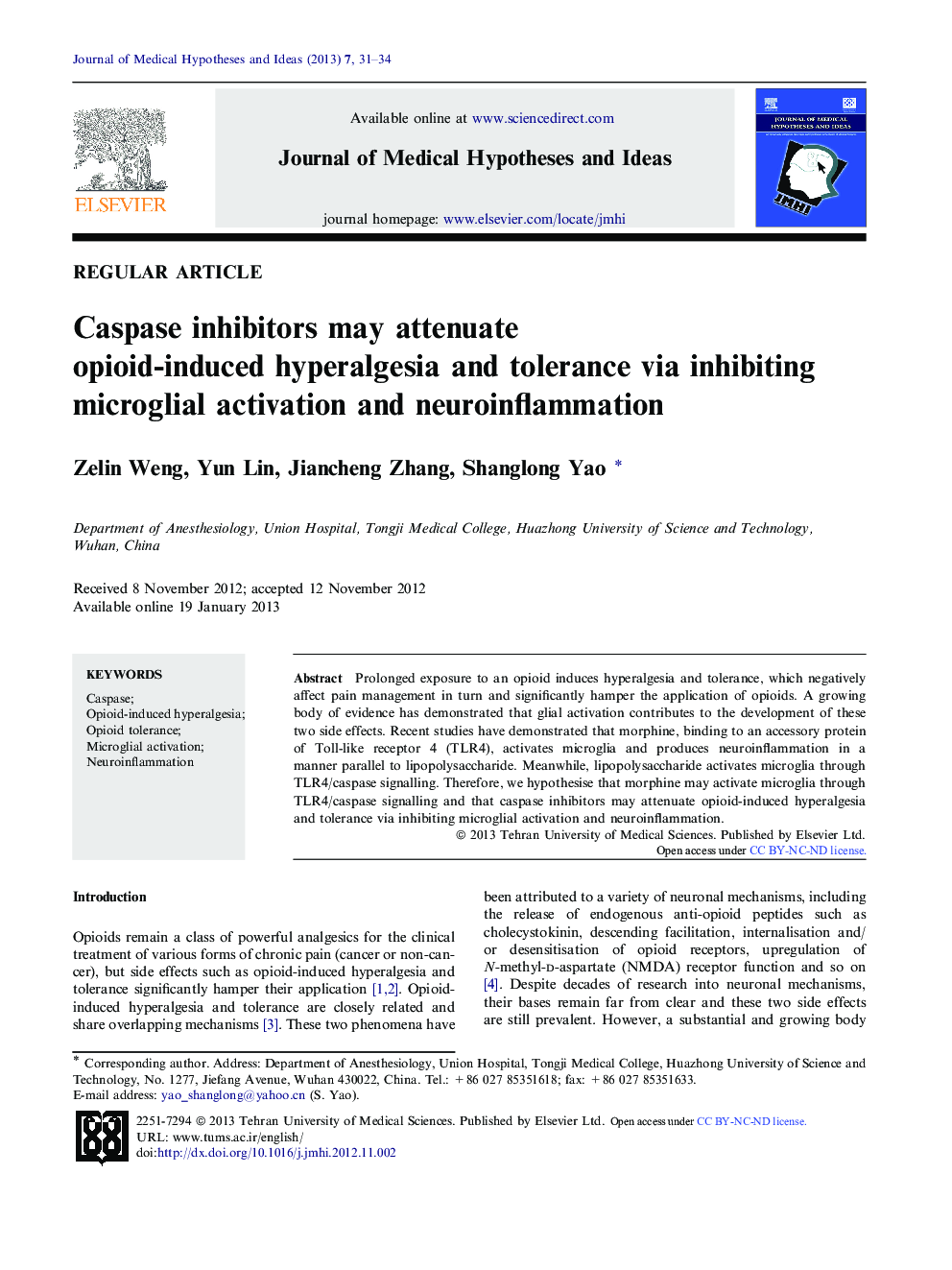| کد مقاله | کد نشریه | سال انتشار | مقاله انگلیسی | نسخه تمام متن |
|---|---|---|---|---|
| 3483056 | 1233694 | 2013 | 4 صفحه PDF | دانلود رایگان |

Prolonged exposure to an opioid induces hyperalgesia and tolerance, which negatively affect pain management in turn and significantly hamper the application of opioids. A growing body of evidence has demonstrated that glial activation contributes to the development of these two side effects. Recent studies have demonstrated that morphine, binding to an accessory protein of Toll-like receptor 4 (TLR4), activates microglia and produces neuroinflammation in a manner parallel to lipopolysaccharide. Meanwhile, lipopolysaccharide activates microglia through TLR4/caspase signalling. Therefore, we hypothesise that morphine may activate microglia through TLR4/caspase signalling and that caspase inhibitors may attenuate opioid-induced hyperalgesia and tolerance via inhibiting microglial activation and neuroinflammation.
Figure optionsDownload as PowerPoint slideHighlights
► Morphine, binding to an accessory protein of Toll-like receptor 4 (TLR4), activates microglia and produces neuroinflammation in a manner parallel to lipopolysaccharide.
► Lipopolysaccharide activates microglia through TLR4/caspase signalling.
► We hypothesise that morphine may activate microglia through TLR4/caspase signalling and that caspase inhibitors may attenuate opioid-induced hyperalgesia and tolerance via inhibiting microglial activation and neuroinflammation.
Journal: Journal of Medical Hypotheses and Ideas - Volume 7, Issue 2, July 2013, Pages 31–34